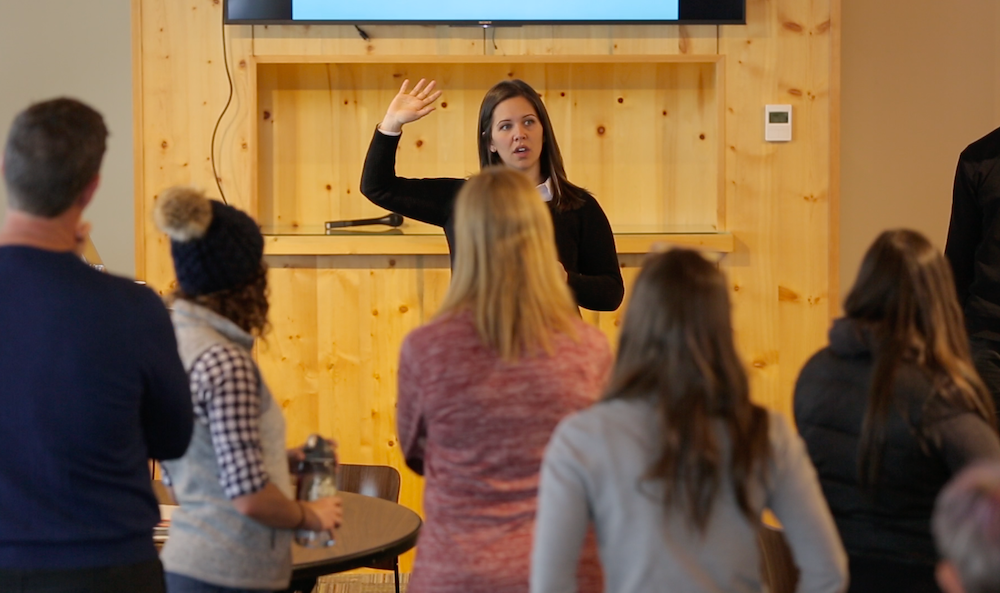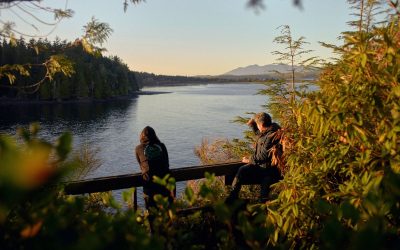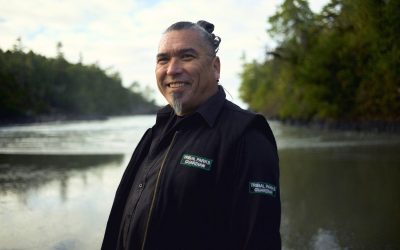We hold workshops because residents must have a voice in reimagining tourism where they live, and DMOs need to listen.
Destination marketing organizations (DMOs) of any size need to work alongside local residents because successful tourism requires community support. To continue to earn that support, it’s also clear that tourism needs to be reimagined. The industry needs to take greater responsibility for its economic, social, cultural, and environmental impacts. The urgency has grown since the pandemic began, and participation from residents is crucial to making positive change happen.
At Destination Think, we have collaborated with tourism stakeholders, including residents, to help many places begin to reimagine tourism. Over the past year, our team has run more than 100 online resident workshops in the U.S., Canada and New Zealand. The workshops we host are forums where locals share their ideas and insights to influence areas like place branding, creative development, and tourism planning.
In 2021, we worked with residents across Oregon to shape a 10-year tourism strategy. Aspen, Colorado residents provided insights to build a destination management plan tailored to their needs and opportunities. Our team spoke with residents throughout British Columbia and Saskatchewan to map out those provinces’ Place DNA®. And, a little farther back, collaboration with residents, including Indigenous groups, was key to the process that led to the 2020 Place Brand of the Year award we share with Auckland Unlimited. These are just a few examples among many. Along the way, our team has gained a deep understanding of people’s attitudes towards tourism and their expectations of destination marketers like you.
Each workshop experience is different depending on who attends, the interests they represent, and the local culture. Each place is different too, requiring a distinct tourism and destination marketing approach.
But when we zoom out, our team observes some common themes behind the input we have received this past year. These ideas are imperative for destination marketers and managers to understand.
Here are five of the key themes behind today’s resident sentiment trends and our recommendations to help your destination plan for the future.
1. People are proud of where they live
In most cases, residents expressed a lot of pride in the places they live. They are proud of the communities they’ve built, and many consider themselves lucky to live there or to have moved there. Residents see visitors as tangible proof their place is special. They want to share their passion and pride with those travellers too. Local pride takes many forms. For example, one resident from a workshop in a farming community suggested placing signs along the highway to tell people which crops are grown in the area and educate highway travellers about where their food comes from. Many DMOs have the opportunity to build local pride, or topophilia (love of place), that can support destination management efforts.
2. People want the same things despite cultural differences
Many places have become politically polarized, and our team has spoken to people across the spectrum. We have found that, in principle, people want the same things. They are concerned about the natural environment locally, climate change and its impacts globally, and working towards an equitable society. However, how they express their concerns differs. They might assign different levels of urgency or think differently about how to address these issues. Destination marketers need to create inclusive solutions that align with the local culture. Don’t be afraid to take a stand when necessary. Destinations will continue to become known for what they stand for, which will attract or deter people.
3. People see tourism as an opportunity, as long as it is properly managed
People see tourism as a way to diversify their economy and increase their quality of life. Residents also recognize that tourism supports services, amenities and experiences they enjoy. This perception is especially true in places with a small visitor economy.
Even those who live in places where overtourism or mass tourism cause problems look at the industry and imagine what is possible. Some people are very upset or even angry about the impacts of tourism. Some call to stop tourism promotion altogether. But most others see the opportunity to do better, to make tourism regenerative instead of extractive. Most believe there is a path to a better world and a better tourism industry. That’s why it’s so urgent for destination marketers to become destination managers. The future of your destination marketing organization (DMO) may depend on its ability to address issues related to the local quality of life.
4. Common challenges: Environment, infrastructure, affordable housing, living wages, and diversity
Workshop participants specifically associate tourism with (potential) negative impacts on the local environment, infrastructure, and affordable housing. They also recognize that tourism marketing and the industry have not always been representative of marginalized communities, including BIPOC. They expect local tourism leaders to work on addressing these areas. Residents also see that tourism jobs need to start paying livable wages to be worth the effort. The role of destination marketers and managers is to address these problems and look for opportunities to lead the solutions.
5. Destination marketing has powerful direct and symbolic impacts
The tourism industry has the power to influence and lead by example. Tourism brings people together, and it can make direct or symbolic impacts. DMOs reflect the local culture through the stories they tell, the people they feature, and the experiences they promote. What they communicate and how they do it speaks to values. In that way, our industry can influence culture. For example, in Canadian workshops, multiple residents commented on Indigenous-language signage projects recognizing First Nations, Metis, or Inuit territories. Those projects are only a tiny piece of the larger cultural picture, but they have led people to educate themselves about the Indigenous nations on whose lands they now live.
Resident workshops are where destination marketers like you have the privilege and responsibility to hear directly from the people who make their destination what it is. Without locals, there would probably be no reason to visit at all.
Our recommendations
Listen carefully to residents and act on what you hear. Your DMO has powerful opportunities to improve social license for tourism by meeting residents’ needs. Consider these areas:
- Fostering residents’ pride of place builds brand and strengthens morale in the community.
- It will be advantageous to your brand to stand up for what you value.
- It is now urgent for destination marketers to become destination managers.
- Destination managers need to address compounding social and environmental crises.
- The tourism industry has the power to shape culture.
Your job, and your DMO’s role, is to help your destination shape tourism in a way that benefits everyone more deeply.
Feature image: Senior Strategic Consultant Sarah Prud’homme leads a 2018 Destination Think workshop in Vail, Colorado.









This is so powerful. I am a local government practitioner responsible for the overall management of the Tourism sector from a government perspective. I would love to reach out to you because we are also going through the same exercise in respect of Reimagining the Tourism sector in our region.